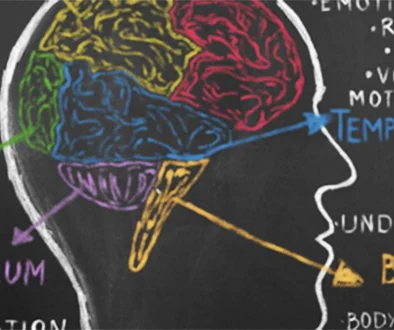What 5 Questions To Skyrocket Your Emotional Intelligence.
What 5 Questions To Skyrocket Your Emotional Intelligence.
Five questions, five opportunities to make emotions work for you, instead of against you.
Emotional intelligence is the ability to identify, understand, and manage emotions in real time. Developing your EQ (emotional intelligence quotient) can keep you from making decisions you later regret and help you to take actions that benefit you and the people around you.
The greatest thing of all about emotional intelligence? It’s not static. Decades of research show that while you may be born with certain talents, the focused effort can help you grow your EQ.
So, what are some practical tips that can help you manage emotions when it matters most?
Ask yourself the following five simple questions on a daily basis, and they’ll help you both to understand and manage your emotional behavior:
- Does this need to be said?
- Does this need to be said by me?
- Does this need to be said by me, now?
- Can I disagree and commit?
- Can I empathize without agreeing?
Let’s break down each of these, and show why each can vastly improve the quality of your life.
The 3-question trick that will save your relationships
The first three questions from an unlikely source: comedian and television personality Craig Ferguson.
“There are three things you must always ask yourself before you say anything,” Ferguson once said in an interview.
- Does this need to be said?
- Does this need to be said by me?
- Does this need to be said by me now?
It takes only seconds to go through these questions mentally–but they can prevent you from years of regret. (Ferguson quipped that it took him three marriages to learn that lesson.)
For example, this quick mental dialogue can keep you from sending an angry email. It can make you a better teammate, as you give your colleagues a chance to voice their opinions first.
It can even help you at home–by making you a better listener and helping you choose the best moments to share your opinion. For example, maybe you do need to discuss an important issue with your spouse. But is right after work when you’re both completely exhausted the best time to do it?
Conversely, Ferguson’s questions don’t discourage you from speaking up when appropriate. There are definitely times when the answer to all three questions is a resounding yes. But asking them silently first will allow you to move forward with confidence.
Disagree and commit
Basically, the phrase “disagree and commit” means to give in and let someone have his or her way–but then to commit to doing your best to support that decision.
In one letter to shareholders, Amazon founder Jeff Bezos described it this way:
This phrase will save a lot of time. If you have a conviction on a particular direction even though there’s no consensus, it’s helpful to say, “Look, I know we disagree on this, but will you gamble with me on it? Disagree and commit?”
As Bezos went on to explain, to disagree and commit doesn’t mean thinking your team is wrong and missing the point. Rather, “it’s a genuine disagreement of opinion, a candid expression of my view, a chance for the team to weigh my view, and a quick, sincere commitment to go their way.”
After a lengthy discussion with a partner or colleague, you may see that each of you is still passionate about your opinion, and still far from agreeing. When that happens, ask yourself:
Can I disagree and commit?
When you disagree and commit, you communicate trust. The effect is the same whether it’s your team taking a risk on a new product, or your partner making a decision on where to go for dinner. But the key is once you commit to the decision, there’s no going back.
No subtle sabotage of the decision, through snide comments or half-hearted effort.
No “I told you so” if it doesn’t work out.
Instead, it’s 100 percent effort to make that decision a success.
Asking yourself this question is key to the building (and maintaining) trusting relationships. Because when you go all in with people you trust, they’ll do the same for you.
Empathy doesn’t equal agreement
In an interview Chris Voss, who may be the best negotiator in the world. Voss spent more than two decades in the FBI, during which he worked on more than 150 international hostage cases. Eventually, he was chosen among thousands of agents to serve as the agency’s lead international kidnapping negotiator–a position he held for four years.
Want to know the number-one lesson Voss taught me?
Empathy does not equal agreement.
Voss was forced to develop empathy for kidnappers and terrorists. He had to understand where they were coming from, their current state of mind, their reasons, and motivations–if he had any chance of persuading them to give up their victims. Of course, he never endorsed the actions of those lawbreakers, but he worked hard to hear them out and develop understanding.
Then, they would return the favor–giving Voss the benefit of the doubt and listening to what he had to say. This allowed him to reach a great number of them–and to save hundreds of lives in the process.
Hopefully, you’ll never be forced into a hostage situation, but every day you’re faced with countless opportunities to persuade, influence, and negotiate. You can apply the same principle in these scenarios, no matter how far the distance between you and the other party, by asking yourself:
Can I empathize without agreeing?
To persuade people to think differently, you must first understand how they think. Get to know their pain points so you can help solve them. Learn their communication style, along with their personal drivers and motivations. This will allow you to speak in a way they understand. Even more important, this will help you reach them emotionally–which may, in turn, motivate them to act.
Or, as Voss puts it:
“It allows you to change people’s minds.”
So, there you have it. Five simple questions, five opportunities to increase your emotional intelligence:
- Does this need to be said?
- Does this need to be said by me?
- Does this need to be said by me, now?
- Can I disagree and commit?
- Can I empathize without agreeing?
Learn to use these questions effectively, and you’ll be making emotions work for you, instead of against you.



